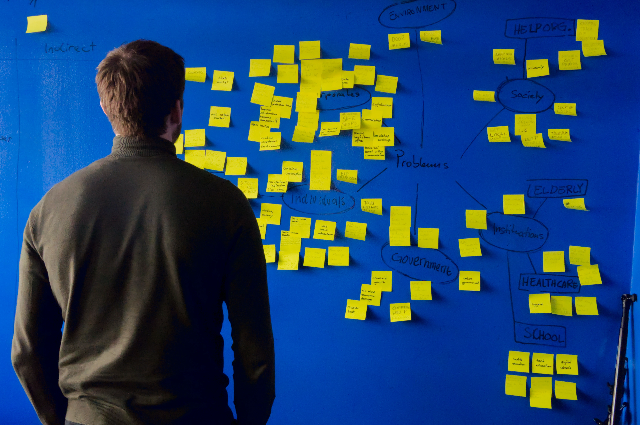
"Can you remember who you were before the world told you who you should be?" - Charles Bukowski
It is a tremendous thought to think that when we were born, our brand new baby minds were as blank about the world before us as a fresh sheet of paper. Before it began to be blotted with our environment, education, and experience with the world, the world before was a wonderland full of miracles.
It is often said that 'be curious like a child' because a child is not afraid to question. A child will ask not one but hundreds of questions and he will not settle unless he's satisfied. However, the world hasn't been generous to those loud minds. In different eras, curious minds and innovative ideas have struggled to make themselves seen, heard, and believed.
The Misery of the Medieval Mind: Clutched in the Clenches of Churches
During the Middle Ages, Church discouraged any ideas that would go against the Christian beliefs. This severely hindered scientific development and thinking. When Galileo held that the Earth revolves around the Sun and not vice versa, the Catholic church accused him of heresy. He was pressured to take back his words.
Renaissance: The Revival of Spirit of Free-thinking
The period of Renaissance that began in the 14th Century was like the breath of fresh air, which revived the spirit of free-thinking. It was a nudge to the curious to question and think critically. It is this period of history which is credited for pulling Europe out of the Dark Ages into the Modern world. Some of the best and life-changing works in Literature, Science, and Arts were done in this period.
Those who Dared to Do Different
Definitely, free-thinkers in history have been subjected to severe criticism. Socrates, the genius, was poisoned because he was accused of corrupting the minds of youth. Today, he is one of the most revered men from the ancient world.Many more such examples can be quoted from history. Those who stood against slavery, gender inequality, racism, casteism, crooked governmental systems Et Cetra have been looked down upon by society. But, these are the people who have changed the course of history.
Odds Posed by Stereotypes: Why Society object Changes?
Every individual is different. However, each individual can be categorically placed into different groups. For example, each individual can be placed under a certain age group, sex group, gender group, religious group, nationality, cultural group, political group Et Cetra.
It's a tendency that each individual is invariably identified as a member of some group. As a result, you become a victim of certain stereotypes. You may become subject to prejudice ( an unjustified attitude) or discrimination (an unjustified action).
Sadly, society has sustained these stereotypes. Some of these stereotypes have been ingrained so deeply that it poses a serious threat to the development of society itself.

John Stuart Mill: The Advocate of Freedom of Expression
Finding an expression for our sentiments and ideas is equally important. How would original ideas make their way into the world without being propagated?
John Stuart Mill, an English political thinker favoured the idea of 'freedom of thoughts and expression.' He held that it is only through the exchange of ideas that the truth becomes more obvious. Healthy discussions with divergent ideas lead to the discovery of different dimensions of truth. Further, discussion increases the reasoning power among the individuals.
Mill opines that a person who believes in false, shouldn't be suppressed from expressing himself as the truth will ultimately triumph over the false. As far as the difference of opinions is considered, Mill speaks that different perspectives should co-exist peacefully as it breaks the "dull and dead uniformity."
He holds that in the absence of freedom of expression, the truth will be suppressed and not strangled. It will be delayed, and with the delay of truth, the development of society will get delayed too.
The Force behind the Revolution
"We are the music makers, And we are the dreamers of dreams...
Revolution means 'big change'. It is said that any revolution of any kind is first initiated as an idea. Thus, a 'revolution of thought' precedes any social/political revolution. To cite evidence from history, the ideas of Voltaire, Montesquieu, and Jean Jacques Rosseassu inspired the famous French Revolution.
Be You-nique (Unique)
As an individual, we all have unique minds. Certain books, people, events, and surroundings shaped our beliefs. Some of the core beliefs we hold most firmly. Under similar situations, we all act differently. We all think differently.
We may take inspirations or be inspirations but we'll all stay individuals. The very word 'individual' has Latin roots ' in' meaning 'not' and 'dividuus' meaning 'divisible'.
The most common reason for all conflict is the difference of perspectives. Nothing is absolute black or absolute white, it's very much grey. Most of the arguments are fought in these grey battlegrounds. Somehow, to have the gift of imagination and creativity is one's greatest gift. Somehow, to be yourself, in a world that judges you and criticises you, is an act of courage.
